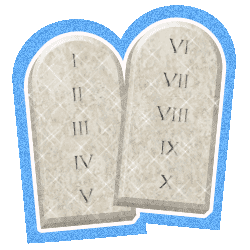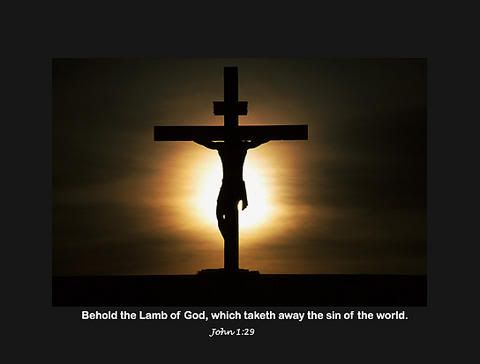BIBLE STUDY








"CONTINUATION FROM PAGE 1 -
OVERVIEW OF THE BOOK OF GENESIS"
OVERVIEW OF THE BOOK OF GENESIS"
This hubris is met with a divine response—God scatters the formerly unified people and confuses their language.
Shem (Gen 11:10–26). The Shem genealogy ends at Gen 11:26 with Terah fathering three sons. One of these—Abraham—will play a significant role in what follows.
Terah (Gen 11:27–25:11). The Terah tholedoth bridges the traditionally defined divide between the Primeval History and Ancestral Narratives. The reader first meets Abraham in Genesis 11:26 as one of three sons of Terah. Abraham’s wife, Sarah, is also introduced in the Primeval History (Genesis 11:29). The link between the two larger narrative blocks continues in the beginning of Genesis 12. Yahweh appears to Abraham and instructs him to depart the safety and comfort of his homeland for a land God will show him. Abraham obeys. God makes two other promises to Abraham, including giving him an heir (Genesis 15, 17). The reader has known that Sarah is barren since Genesis 11:30, and Sarah gives her maidservant, Hagar, to Abraham. This union produces Ishmael, but also produces jealousy and conflict with Sarah. Hagar then flees with the child. God then reveals that Ishmael is not the designated heir—a child of Sarah will fill this role. In her old age, Sarah conceives and bears Isaac. However, God puts Abraham to the test—He instructs him to sacrifice his son (Genesis 22). Abraham demonstrates his obedience, but an angel of God intervenes, and Abraham sacrifices a ram instead. Terah tholedoth ends with Sarah’s death (Genesis 23) and Abraham’s servant finding a wife for Isaac (Genesis 24).
Shem (Gen 11:10–26). The Shem genealogy ends at Gen 11:26 with Terah fathering three sons. One of these—Abraham—will play a significant role in what follows.
Terah (Gen 11:27–25:11). The Terah tholedoth bridges the traditionally defined divide between the Primeval History and Ancestral Narratives. The reader first meets Abraham in Genesis 11:26 as one of three sons of Terah. Abraham’s wife, Sarah, is also introduced in the Primeval History (Genesis 11:29). The link between the two larger narrative blocks continues in the beginning of Genesis 12. Yahweh appears to Abraham and instructs him to depart the safety and comfort of his homeland for a land God will show him. Abraham obeys. God makes two other promises to Abraham, including giving him an heir (Genesis 15, 17). The reader has known that Sarah is barren since Genesis 11:30, and Sarah gives her maidservant, Hagar, to Abraham. This union produces Ishmael, but also produces jealousy and conflict with Sarah. Hagar then flees with the child. God then reveals that Ishmael is not the designated heir—a child of Sarah will fill this role. In her old age, Sarah conceives and bears Isaac. However, God puts Abraham to the test—He instructs him to sacrifice his son (Genesis 22). Abraham demonstrates his obedience, but an angel of God intervenes, and Abraham sacrifices a ram instead. Terah tholedoth ends with Sarah’s death (Genesis 23) and Abraham’s servant finding a wife for Isaac (Genesis 24).
NOTE: Many people completely misunderstand or miss the full reason why Yahweh asked Abraham to sacrifice Isaac. This is MUCH MORE than a simple "test" for Abraham and it's quite probable that Abraham even had an idea of what was going on here! If you read Genesis 22:5 carefully, you see that Abraham told his servants; "And Abraham said unto his young men, Abide ye here with the ass; and I and the lad will go yonder and worship, and come again to you." Notice that Abraham seemed pretty sure that he AND Isaac would be returning together! Why? The answer lies in Abraham's great faith! He KNEW that Yahweh had promised that his descendants would become a great nation and that Isaac was the child of promise. My guess is that either Abraham knew that he was acting out prophecy -or- that even if he did have to sacrifice him, that Yahweh would then just have to resurrect him because of the promise! Now THAT'S "great faith"!
If your not sure what prophecy is being foreshadowed here, it's none other than the sacrifice of Yahweh's Own Son, Yahshua, given for our own sins!
Another VERY interesting NOTE here is found in Genesis 22:2. Yahweh says to Abraham, "And he said, Take now thy son, thine only son Isaac, whom thou lovest, and get thee into the land of Moriah; and offer him there for a burnt offering upon one of the mountains which I will tell thee of." What's interesting here, is that THIS is the FIRST time the word "LOVE" is actually used in the Bible! Generally, the very first mention of anything in the Bible, sets the tone and message for how it will be used throughout the remainder of Scripture.
When we dig a little deeper into Genesis 22:2, we find the following information:
22:2 your only child, Isaac See also v. 12. Since Isaac is not Abraham’s only son (he had Ishmael by Hagar earlier; 16:11–16), the Hebrew term for “only” is one of value, not number. Isaac is Abraham’s special son—through him the covenant promises with God will be passed on (17:21). The NT refers to Isaac with the term monogenē, the same word found in John 3:16 describing Jesus. The term is often translated “only begotten,” but this is incorrect and ignores that Hebrews 11:17 refers to Isaac as monogenē.
“Begotten” as a translation choice was based on the assumption that monogenē comes from two Greek words, monos (“alone, only”) and the verb gennaō (“to beget, bear [offspring]”). Subsequent research has shown that monogenē comes from monos and genē (“kind”), so the term means “unique.” This means that Jesus was the unique son of God. Hebrews 11:17 uses monogenē to describe Isaac, demonstrating that the term refers to Isaac’s special status, not his birth or birth order. (From Barry, J. D., Grigoni, M. R., Heiser, M. S., Custis, M., Mangum, D., & Whitehead, M. M. (2012). Faithlife Study Bible (Ge 22:2). Bellingham, WA: Logos Bible Software.)
If your not sure what prophecy is being foreshadowed here, it's none other than the sacrifice of Yahweh's Own Son, Yahshua, given for our own sins!
Another VERY interesting NOTE here is found in Genesis 22:2. Yahweh says to Abraham, "And he said, Take now thy son, thine only son Isaac, whom thou lovest, and get thee into the land of Moriah; and offer him there for a burnt offering upon one of the mountains which I will tell thee of." What's interesting here, is that THIS is the FIRST time the word "LOVE" is actually used in the Bible! Generally, the very first mention of anything in the Bible, sets the tone and message for how it will be used throughout the remainder of Scripture.
When we dig a little deeper into Genesis 22:2, we find the following information:
22:2 your only child, Isaac See also v. 12. Since Isaac is not Abraham’s only son (he had Ishmael by Hagar earlier; 16:11–16), the Hebrew term for “only” is one of value, not number. Isaac is Abraham’s special son—through him the covenant promises with God will be passed on (17:21). The NT refers to Isaac with the term monogenē, the same word found in John 3:16 describing Jesus. The term is often translated “only begotten,” but this is incorrect and ignores that Hebrews 11:17 refers to Isaac as monogenē.
“Begotten” as a translation choice was based on the assumption that monogenē comes from two Greek words, monos (“alone, only”) and the verb gennaō (“to beget, bear [offspring]”). Subsequent research has shown that monogenē comes from monos and genē (“kind”), so the term means “unique.” This means that Jesus was the unique son of God. Hebrews 11:17 uses monogenē to describe Isaac, demonstrating that the term refers to Isaac’s special status, not his birth or birth order. (From Barry, J. D., Grigoni, M. R., Heiser, M. S., Custis, M., Mangum, D., & Whitehead, M. M. (2012). Faithlife Study Bible (Ge 22:2). Bellingham, WA: Logos Bible Software.)
Ishmael (Gen 25:12–18). The brief Ishmael genealogy fulfills the divine promise of a future for Ishmael in Gen 16:12—

Genesis 16:12: (Hebrew Roots Bible - "HRB") And he shall be a wild donkey of a man, his hand against all, and the hand of everyone against him; and he shall live before all his brothers.









